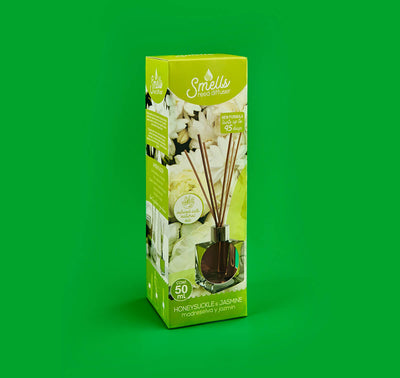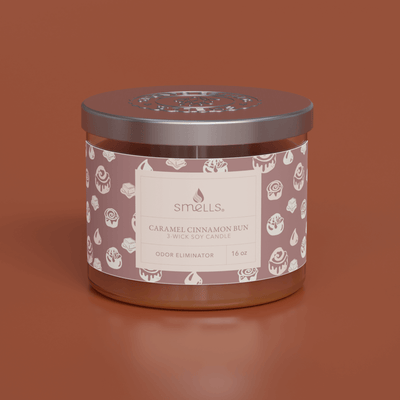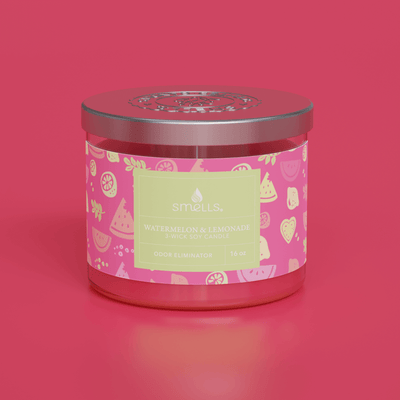Types of Candle Wax: Finding the Ideal Choice for Your Home
Candles have long been cherished for their ability to create a warm and inviting ambiance in any space. However, not all candles are created equal, and the type of wax used plays a significant role in their performance and characteristics.
In this article, we will delve into the world of candle wax and explore four diverse types: paraffin wax, beeswax, coconut wax, and soy wax. By understanding their qualities and benefits, you can make an informed decision when choosing the ideal candle wax for your home.
Now, without further ado, let’s dive into the 4 most common types of candle wax!

Table of Contents
Paraffin Wax
One of the most common waxes used in candle production is paraffin wax. It is generated from petroleum and has several benefits. Paraffin candles are well-known for their low cost, variety of colors and scents, and good smell. They come in various forms and sizes, including popular alternatives like 3-wick scented and single-wick aromatic candles.
However, it is crucial to remember that paraffin wax is a petroleum byproduct, raising questions regarding sustainability and environmental effect. If you are concerned about your health or the health of our planet, other candle wax types are better developed with these concerns in mind.
Beeswax
Beeswax candles are a great alternative for individuals looking for a more natural and elegant solution. This is because beeswax is a natural wax bees make with a pleasant honey-like aroma. These candles are well-known for their extended burn periods, clean burn, and gentle, mellow glow. Additionally, when beeswax candles are lit, they emit negative ions, which help to cleanse the air in your house.
While these kinds of candles are more expensive than other choices, their distinct traits and benefits make them worthwhile investigating. As mentioned above, this candle type is a healthier alternative to your standard paraffin.
Coconut Wax
Coconut wax is a relatively new addition to the candle wax landscape, derived from the meat of coconuts. Because coconuts are a renewable resource, it provides a clean and environmentally favorable option. Coconut wax candles burn slowly and evenly, resulting in a longer candle. They also have a lower melting point, allowing for a greater smell throw and a richer aroma. Coconut wax candles are an excellent choice if you enjoy tropical aromas and want candles with a smooth and creamy texture.
Soy Wax
Soy wax has grown in popularity recently due to its natural origins and eco-friendliness. Soy wax candles, made from soybean oil, are renewable, biodegradable, and generate less soot when burned. They have a clean, long-lasting burn that allows you to savor their scent for lengthy periods of time.
Furthermore, because soy wax has excellent smell retention, soy candles are widely sought after for their fragrant properties. Whether you favor flowery, fruity, or relaxing aromas, there are scented candles made of soy wax to suit your tastes.
Key Considerations in Choosing the Ideal Candle Wax
When selecting the perfect candle wax for your home, there are a few factors to keep in mind:
- Scent Preference: When choosing the type of wax that is best for you and your home, you will want to consider your scent preference. Remember, beeswax will smell sweeter, while coconut will smell more tranquil.
- Burn Time: If you want your candles to last longer, choose waxes with slower burn rates, such as beeswax and soy wax.
- Sustainability: If environmental impact is a concern, opt for waxes like soy wax and coconut wax, which are renewable and eco-friendly. You should avoid the purchase of paraffin if this is your top concern.
- Safety: Look for waxes that produce minimal soot and are free from harmful chemicals, ensuring a safe and healthy environment for you, your family, and your home.

Choose SMELLS for Unforgettable Candle Experiences
SMELLS is a beacon of quality in the world of candle aficionados, presenting a stunning assortment of scented candles produced with the highest care and attention to detail. Because we use sustainable soy wax, you may enjoy the luxury of our perfumes while being environmentally conscientious.
Aside from the attraction of our sumptuous aromas, our candles have a clean burn, a longer-lasting perfume, and low soot formation, thanks to our high-quality soy wax. This dedication to quality guarantees that each candle casts a warm and inviting glow while filling the air with delectable smells.
Are you ready to go on an unforgettable sensory journey? Choose SMELLS to help you create an environment of elegance, tranquility, and enjoyment. Explore our selection today, choose the smells that speak to you, and discover the magic of SMELLS for yourself.
FAQs
What are the main differences between soy wax and paraffin wax? Which is better?
Soy wax is a natural and renewable option derived from soybeans, while paraffin wax is a byproduct of petroleum, which can be harmful to your health, your pet’s health, and the health of the environment. On the other hand, soy wax offers a cleaner burn, longer-lasting fragrance, and minimal soot production compared to paraffin wax. It is considered the better choice for those seeking a sustainable and eco-friendly option.
What is the safest wax for candles?
Beeswax and soy wax are considered the safest options for candles. Beeswax candles are all-natural and release negative ions that purify the air. Soy wax candles are made from a renewable resource, have minimal soot production, and are free from harmful chemicals found in some other waxes.
What types of candles to avoid?
It is best to avoid candles made from low-quality or unknown wax sources, as they may contain harmful additives or produce excessive soot when burned. Additionally, candles with lead-core wicks should be avoided, as they can release toxic fumes when lit.










Leave a comment